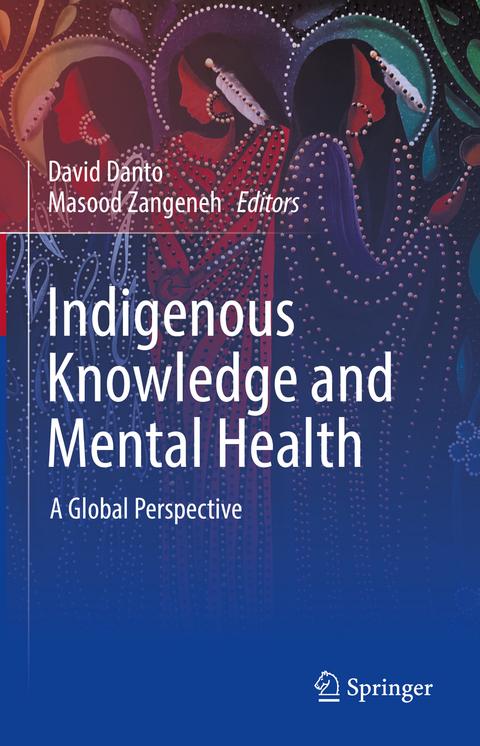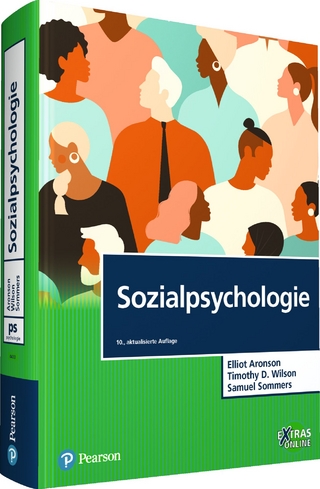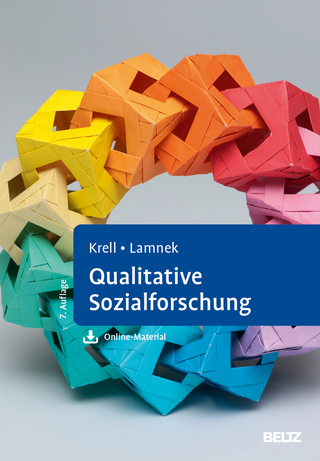
Indigenous Knowledge and Mental Health
Springer International Publishing (Verlag)
978-3-030-71344-7 (ISBN)
This book brings together Indigenous and allied experts addressing mental health among Indigenous peoples across the traditional territories commonly known as the Americas (e.g. Canada, US, Caribbean Islands, Mexico, Bolivia, Venezuela, Ecuador and Brazil), Asia (e.g. China, Korea, Japan, Taiwan and Indonesia), Africa (e.g. South Africa, Central and West Africa) and Oceania (New Guinea and Australia) to exchange knowledge, perspectives and methods for mental health research and service delivery. Around the world, Indigenous peoples have experienced marginalization, rapid culture change and absorption into a global economy with little regard for their needs or autonomy. This cultural discontinuity has been linked to high rates of depression, substance abuse, suicide, and violence in many communities, with the most dramatic impact on youth. Nevertheless, Indigenous knowledge, tradition and practice have remained central to wellbeing, resilience and mental health in these populations.Such is the focus of this book.
lt;p>Dr. David Danto is a clinical psychologist and Head of Psychology at the University of Guelph-Humber. He serves on the Board of Directors of the Canadian Psychological Association (CPA), is Board Liaison to the CPA Committee on Ethics, past Chair of the CPA Indigenous Peoples section and is a past trustee for the Psychology Foundation of Canada (PFC). In 2017 he chaired the CPA and PFC Task Force on Responding to the Truth and Reconciliation Commission Report, and he currently Chairs the CPA Standing Committee on Reconciliation. Dr. Danto has worked in psychiatric hospitals, university counselling centers, private practice, and correctional facilities in Canada and the United States. In partnership with Indigenous Knowledge Keepers, Dr. Danto developed a field course on Indigenous Mental Health, which he has delivered in Mushkegowuk territory along the James and Hudson Bay coast for the last nine years. Dr. Danto researches resilience and mental health within Indigenous communities, with particular focus on the role of the land in healing the impacts of colonialism and intergenerational trauma.
Masood Zangeneh received a masters degree in educational psychology at Mount Saint Vincent Hospital (Toronto), had clinical internships at Centre for Addiction and Mental Health (Toronto) and Queen Mary Hospital, Nottingham University, and received his doctoral degree in philosophy from the University of South Africa. He is a professor of psychology at the University of Guelph at Humber, an adjunct professor in the School of Social Work at the University of Toronto, and a consultant to the Kuwait Centre for Autism. He is also the editor of this book series and the founding and current editor of International Journal of Mental Health and Addiction, published by Springer. His special research expertise is in problem gambling and other addictive disorders. In 2007 he co-edited In the Pursuit of Winning: Problem Gambling Theory, Research and Treatment (Springer).
Foreword.- Introduction.-Section A: Genocide, Exile and Trauma.-Yazidi Mental Health and Collective Trauma and Terror.- The Health and Well-Being of Indigenous Khmer Displaced and in Exile The Psychology of Mussar: Cultural Safety as a Verb.- Section B. The Land and Healing The Mental Health of Indigenous Communities in India: The Kondhas Niyamgiri Bachao Movement in Odisha.- Healing Practices and Rituals of the Forest-Dwelling Rabha Community in Assam, India.- Learning From Those Who Do: Land-Based Healing in a Mushkegowuk Community.- Section C. Culture, Identity and Resilience.- Mental Health and the San of Southern Africa.- Indonesia's Political Reform: Challenges and Opportunities for the Adat Community's Mental Well-Being.- Happiness, Underdevelopment, and Mental Health in an Andean Indigenous Community.- The Jewish People and Indigenous Resilience.- Section D. Culture and Treatment.- Alcohol Use and Resilience among the Indigenous Tuvinians of Siberia.- Reclaiming Our Identity through Indigenous Cultural Generative Acts to Improve Mental Health of All Generations.- Ka Huri Te Ao, a Time of Change: Maori Mental Health and Addiction in Aotearoa, New Zealand.- I Remember Who I Am: Deg Xit'an Athabascan Perspectives on Wellness.- E. Integrating Indigenous and Western Approaches.- Traditional Aboriginal Healing in Mental Health Care, Western Australia.-Integrating Indigenous Healing and Western Counselling: Clinical Cases in Culturally Safe Practice.- F. Reconciliation and Mental Health.- Reconciliation Social Work: Sustainable Community Development.- A Canadian Psychology Task Force Response to the Truth and Reconciliation Commission Report: Summary and Reflections.
This text represents a wholly refreshing, important, challenging, and creative contribution to the literature addressing the impacts of colonization on the wellbeing of Indigenous Peoples and the role of Indigenous knowledge(s) in healing and wellbeing. If this collection's breadth of representation loads the bases, the scholarly depth of these contributions hits the ball out of the park. The global voices we hear are of Indigenous Peoples themselves, and of health workers, activists, and allies embedded within those communities by the suffering of a passion, and a commitment of understanding unafraid to be taught. As such, the book claims the all-important promise of its title, of Indigenous knowledge(s) by which our predominantly Western and positivistic understanding of mental health, inclusive of its praxis implications, can and must be challenged, refigured, adapted, and sometimes even abandoned. A radical teaching, this. This text moves us away from abstractions and platitudes to show us just how, just what, it might mean in practice to be "sensitive" to the other, to be "responsive", and to be open to creative invention and respectful collaboration. We learn about innovative therapies, interventions, and research methodologies: land-based interventions, anti-oppressive therapy, body work, using dance and rituals in therapy, conducting clinical ethnographic, auto-ethnographic, or performance ethnographic research, analyzing songs and folk tales, and what it means to be allies and companions in research and therapy. We learn of a therapy and research of the heart, of a therapy and research for, from, and of the other. In the end, this book does everything it sets itself to, and exceptionally so. Now it is our turn. Having spoken so eloquently and powerfully, the test of our listening is in our response, which is also to say our responsibility.
Leswin Laubscher, Ph.D.
Duquesne University
| Erscheinungsdatum | 06.01.2022 |
|---|---|
| Zusatzinfo | XXIV, 329 p. 20 illus., 16 illus. in color. |
| Verlagsort | Cham |
| Sprache | englisch |
| Maße | 155 x 235 mm |
| Gewicht | 783 g |
| Themenwelt | Geisteswissenschaften ► Psychologie ► Sozialpsychologie |
| Schlagworte | aboriginal mental health • depression in indigenous people • impact of global economy on aboriginals • marginalization of indigenous people • mental health of aboriginal peoples • rapid culture change |
| ISBN-10 | 3-030-71344-X / 303071344X |
| ISBN-13 | 978-3-030-71344-7 / 9783030713447 |
| Zustand | Neuware |
| Haben Sie eine Frage zum Produkt? |
aus dem Bereich


